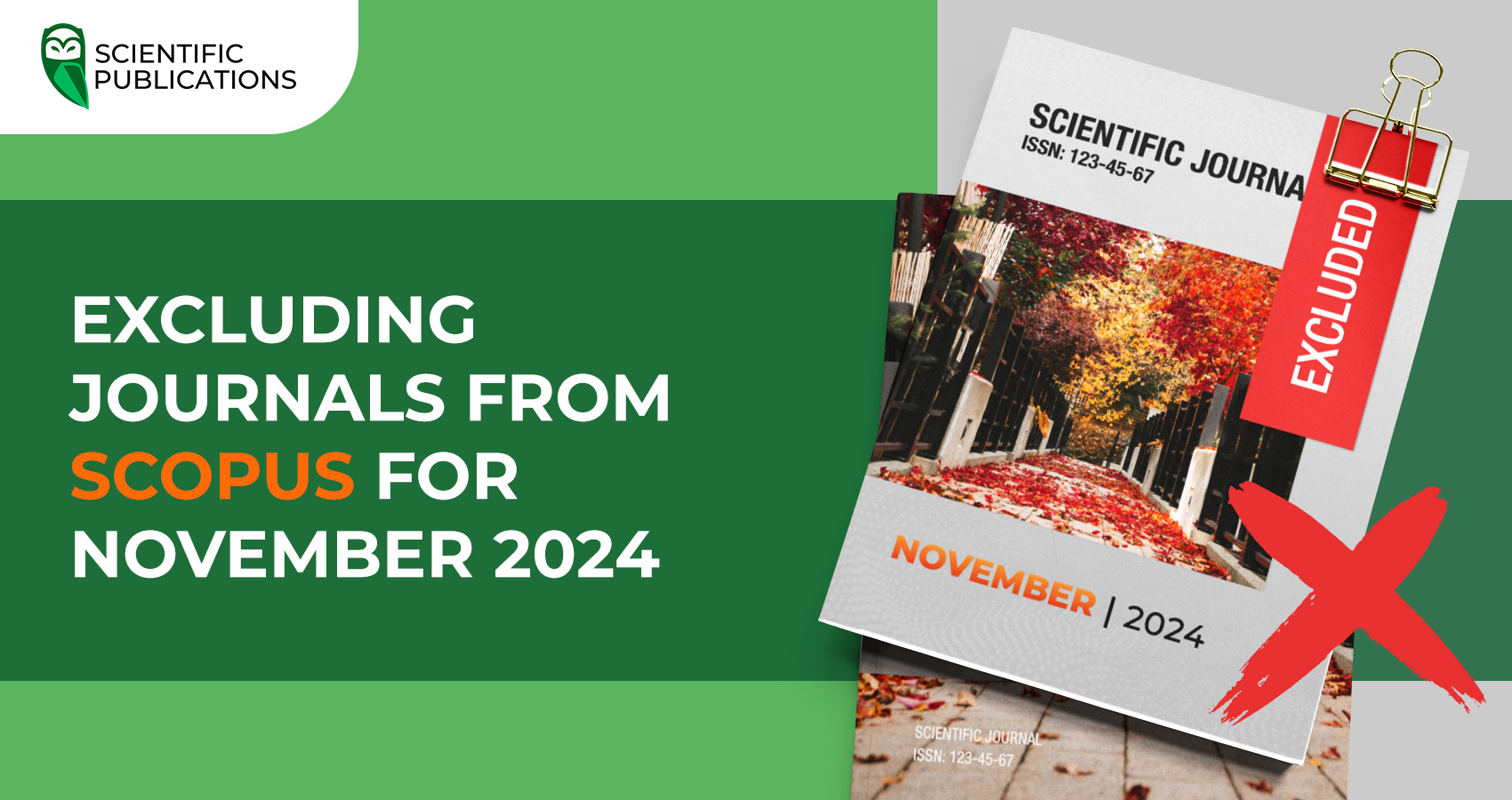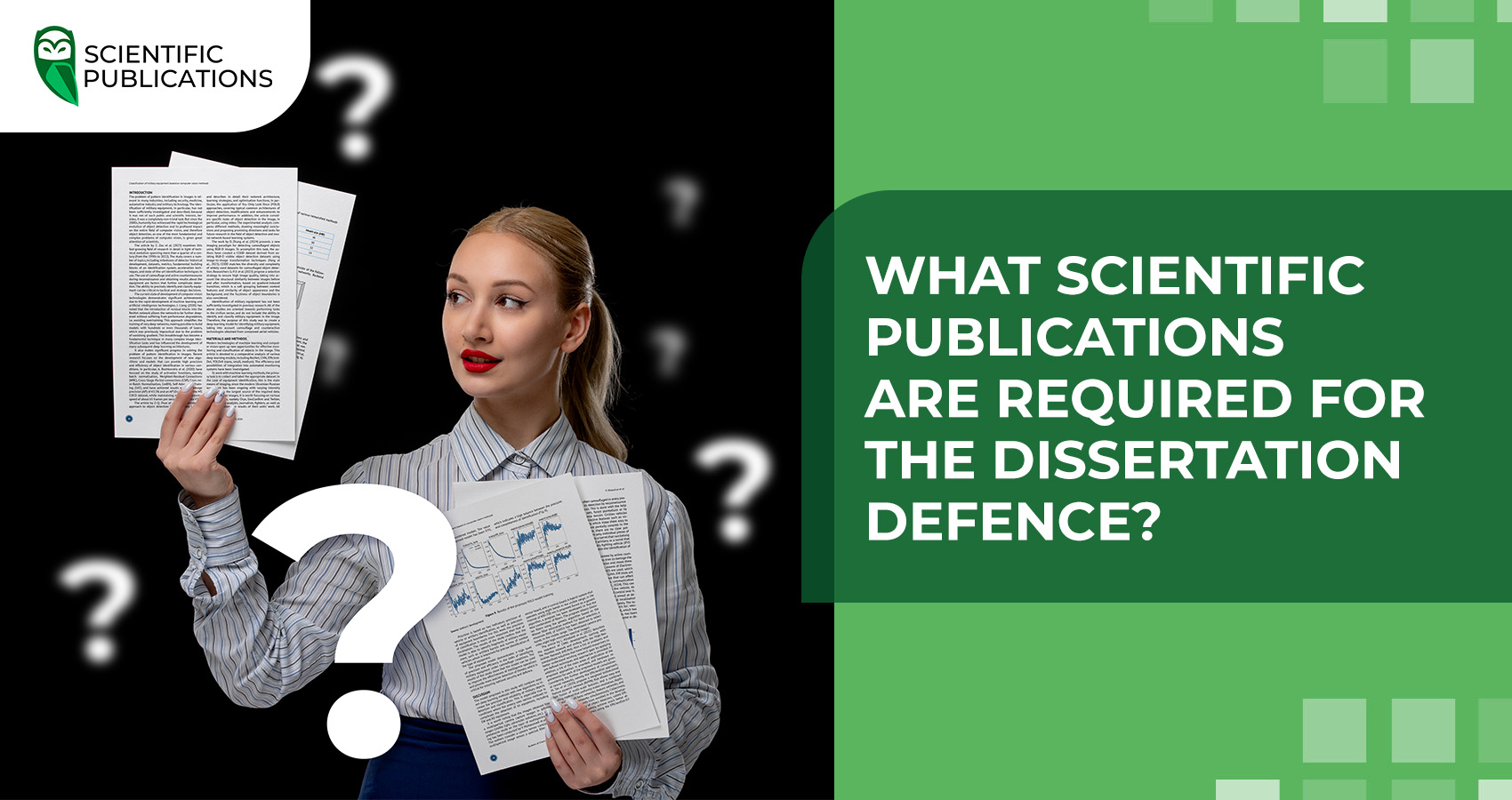The Scopus database has traditionally updated the list of scientific journals that lost indexing in November 2024. In order to find out which publications have been excluded, we recommend you to familiarise yourself with the list prepared by “Scientific Publications”.

Why can a journal be excluded from the Scopus database?
Getting indexed in Scopus is a rather long and complicated process that scientific journals go through. There are a number of criteria that publications must fulfil in order to be included in this database.
Every month Scopus monitors indexed scientific journals. The platform analyses how clearly they adhere to the rules and records violations. There are a number of reasons why a journal can be excluded from the database, namely:
- fraud: journals engage in illegal publication activities (promising fast publication for a fee or pretending to be reputable publications, misleading researchers)
- breach of scientific ethics and academic integrity: journals do not respect the basic principles of honesty and transparency
- poor quality of articles: journals publish papers that do not meet standards of quality and reliability
- lack of relevance: journals publish outdated or irrelevant data
- abrupt changes in scientific metrics: Scopus monitors suspicious activity that can lead to abrupt changes in a journal's scientific metrics, such as citation rate and Hirsch index
- change in the journal's subject matter and direction: deviation from the original concept and scope
List of journals removed from Scopus in November 2024
| № | Scientific Journal | ISSN / e-ISSN | Reasons for exclusion |
| 1 | Academic Journal of Interdisciplinary Studies | Print ISSN –22813993 Online e-ISSN – 22814612 |
Publication Concerns |
| 2 | Computer Systems Science and Engineering | Print ISSN – 02676192 | Radar |
| 3 | Current Problems in Cardiology |
Print ISSN – 01462806 |
Radar |
| 4 | European Review for Medical and Pharmacological Science | Print ISSN – 11283602 Online e-ISSN – 22840729 |
Radar |
| 5 | Indian Journal of Plastic Surgery | Print ISSN – 09700358 Online e-ISSN – 1998376X |
Radar |
| 6 | Intelligent Automation and Soft Computing | Print ISSN – 10798587 Online e-ISSN – 2326005X |
Radar |
| 7 | Journal of Autonomous Intelligence | Online e-ISSN – 26305046 | — |
| 8 | Minerva Pediatrics | Print ISSN – 27245276 Online e-ISSN – 27245780 |
— |
| 9 | Nanotechnology Perceptions | Print ISSN – 16606795 Online e-ISSN – 22352074 |
Radar |
| 10 | Optical and Quantum Electronics | Print ISSN – 03068919 Online e-ISSN – 1572817X |
Radar |
| 11 | Radiology Case Reports | Online e-ISSN – 19300433 | Radar |
| 12 | Revue d'Intelligence Artificie | Print ISSN – 0992499X | Radar |
How are scientific journals monitored?
Scopus takes a comprehensive approach to analysing the performance of scientific journals and identifying violations. The main tool used during this process is a special monitoring system from Elsevier – Radar.
This tool tracks the deterioration of journals' scientometric indicators. Based on the information received, the database makes a decision regarding the continuation or termination of indexing of the publication. The most common reasons for exclusion from Scopus include:
- Artificial increase in the citation level.
- Acceptance of articles without proper verification and selection.
- Abrupt change of scientific topics and direction of the journal.
- Lack of peer review process.
- Violation of the principles of publication ethics.
- Inappropriate number of publications, which casts doubt on their quality.
It is also worth noting that in addition to the results of the Radar system analysis, another reason for excluding journals from the database is “Publication Concerns”.
“Publication Concerns” are problems that can occur during the publication process and affect the reputation of a scientific journal. These include various irregularities that can undermine the credibility of published articles.
These include unfair publication practices, postings that do not meet scientific standards, and data manipulation.
Excluding scientific journals from the Scopus database is a necessary step that helps to maintain a high level of publication quality and authority. In addition, the list of publications that have lost indexation helps scientists when choosing a journal to place their research.
Follow our social media updates to keep up to date with the latest news from the world of science and scientometrics. We are constantly updating information about journals excluded from the Scopus database, as well as analysing global scientific trends and changes.
“Scientific Publications” is ready to help you with the selection of a reliable journal for publication in Scopus. Our specialists will not only provide support at all stages of this process, but also provide post-publication support. To have our manager contact you for a free consultation, please fill in the form below. Together to new scientific achievements!





